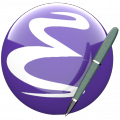"In my previous discussions of copyright, I mentioned that I was reading Free Culture by Lawrence Lessig. I've finished the book, so now I'd like to offer my thoughts..."
Read more »Culture wants to be free
Category: Philosophy Tags:
- Login to post comments
Networking Futures: The Movements against Corporate Globalization
"...Those experiences form the basis of Networking Futures, an innovative ethnography of transnational activist networking within the movements against corporate globalization [...]He further explores how activists have used e-mail lists, Web pages, and free software to organize actions, share information, coordinate at a distance, and stage "electronic civil disobedience." Based on a powerful cul
Read more »Two Bits: The Cultural Significance of Free Software
"So I have an announcement: I have written, and published, A Book [...] Two Bits: The Cultural Significance of Free Software ..." -- From the book description: "Drawing on ethnographic research that took him from an Internet c start-up company in Boston to media labs in Berlin to young entrepreneurs in Bangalore, Kelty describes the technologies and the moral vision that binds together hackers, ge
Read more »Free Software, Free Society: Selected Essays of Richard M. Stallman
"The intersection of ethics, law, business and computer software is the subject of these essays and speeches by MacArthur Foundation Grant winner, Richard M. Stallman.
Read more »Category: Philosophy Tags:
Common Lisp as an AI language
"Programming AI using standard programming languages, e.g., C/C++ or Java is not a good idea. It's too general purpose language. I'm considering to select between (Common) Lisp ..." -- Cool, but it's better on GNU systems ;-)
Read more »Category: High End Tags:
- Login to post comments
UNESCO promotes use of free software in Latin America and the Caribbean
"...According to Richard Stallman, founder of Free Software Foundation and the GNU Project, who wrote an introduction article for the book, the society «needs information that is truly available to its citizens - for example, programmes that people can read, fix, adapt, and improve, not just operate» ..."
Read more »Category: Philosophy Tags:
- Login to post comments
An Introduction to Programming in Emacs Lisp
"This tutorial an elementary introduction to teach non-programmers how to customize their work environment; it can also be used as an introduction to programming basics. It includes numerous exercises and sample programs; the author also walks you through the actual source code of several GNU Emacs commands. A handy reference appendix is included..."
Read more »Category: End User Tags:
- Login to post comments
The Internet Archive Keeps Book-Scanning Free
"While Google has made headlines over the last two years for scanning thousands of copyrighted works for its Book Search project, the Internet Archive is quietly digitizing around 1,000 public domain titles every day.
Read more »Hardware Hacking with Debian GNU/Linux
What is this book about? Well, if you are new to GNU/Linux, and wish to hack AVR microcontrollers, this book should help you do it.
But then, why is it not called `Hack AVR microcontrollers with Debian GNU/Linux’? Well, that was what I thought I would call it, but then I changed my mind.
Maybe, I can show how to design circuits with gEDA, build PCB’s, simulate circuits, do mathematical computations … stuff like that. In that case, this becomes a more general book.
Read more »- Login to post comments
Managing Your Personal Library in Linux; Alexandria: A Review with Screenshots
Alexandria is an application for Linux allows you to sort and track your book collection. It makes it easy to manage your collection by allowing you to sort items into multiple libraries (for example, books at your office, in your home, or elsewhere), and adding books is as simple as entering its ISBN. Once you've setup your collection, you can even export it to an HTML file, to share with other users over the web.
Read more »Category: Beginner Tags:
- Login to post comments
The Future of Ideas is now Free
After a productive and valuable conversation with my publisher, Random House, they've agreed to permit The Future of Ideas to be licensed under a Creative Commons Attribution-Noncommercial license. You can download the book for free here, or above.
Read more »- Login to post comments
A Comic Book for learning Common Lisp
"Anyone who has ever learned to program in Lisp will tell you it is very different from any other programming language. It is different in lots of surprising ways- This comic book will let you find out how Lisp's unique design makes it so powerful!..."
Read more »Category: Beginner Tags:
- Login to post comments
Adventures with Neko
Recently, a few of us had a discussion about translating the book to Malayalam. GNU/Linux is now available in a lot of schools - and a local language version would be a boon to many smart kids who are capable of learning things by themselves. I suggested that we have a go at writing an `orignal’ book - mostly because I was having this pet idea of writing a book for kids for a long time.
Read more »- Login to post comments
Online library reaches million book milestone
One and a half million books in more than 20 languages, including Chinese, English, Arabic, and various Indian languages, are now accessible via a single Web portal. The online library includes rare and out-of-print books from private and public collections around the world.
Read more »Category: Community Tags:
- Login to post comments
Wicked Cool Emacs: get in on the action!
"Ever since I started on this "Wicked Cool Emacs" project with No Starch Press, I've run into all sorts of amazing geeks who have been working on something similar. [...] I would love to work on this book with other people. I think that it would become an even better book than I could write by myself, just as Emacs is better because all these people have worked on it.
Read more »




